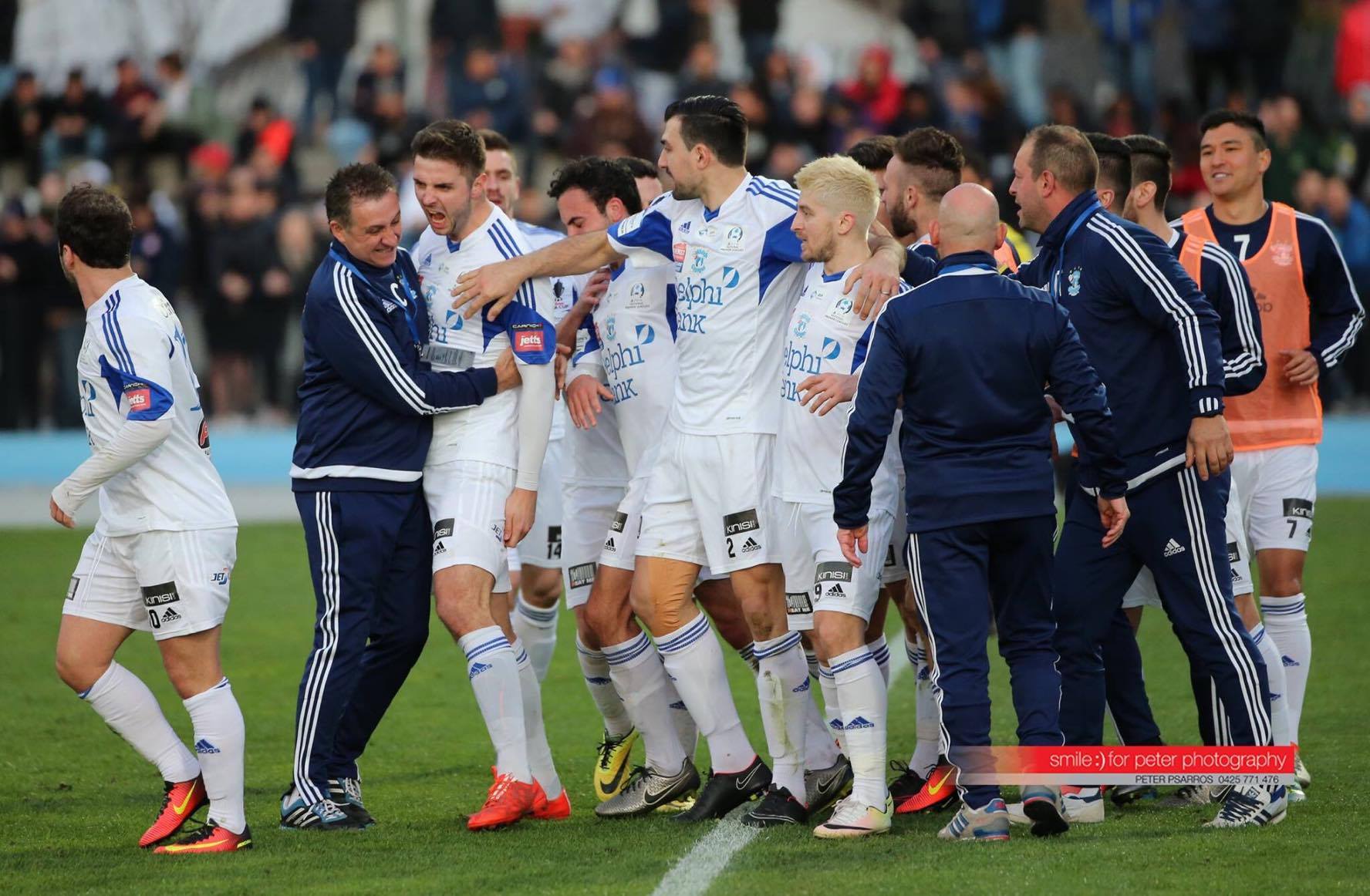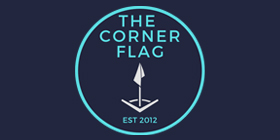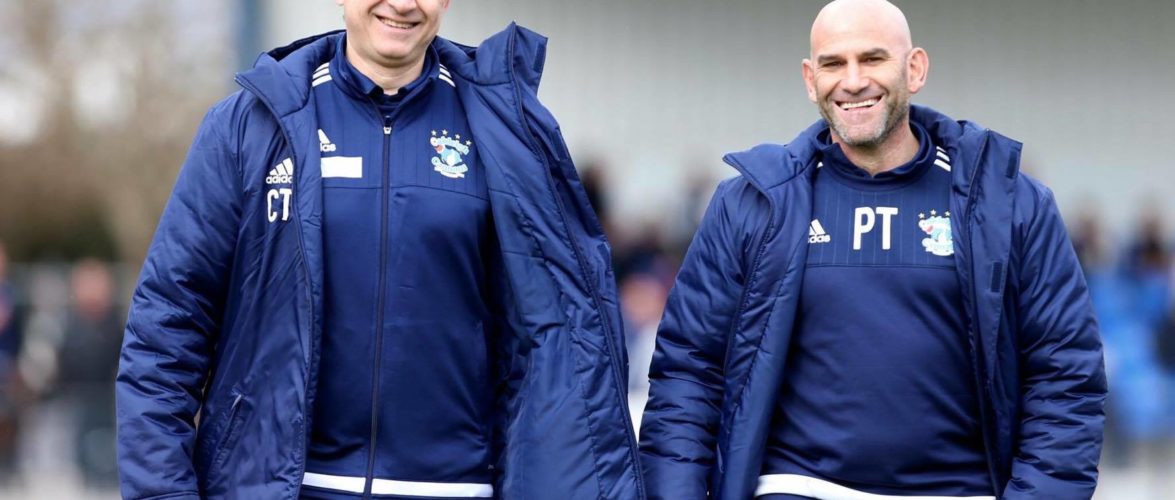Images: Smile for Peter:
The concept of co-coaches or co-managers is, for the most part, uncommon in the world of football. The round ball game has for decades been associated with the idea that an authoritarian figurehead occupies the role of manager/coach while his assistants perform a variety of different roles which complement his duties.
In 1998, Liverpool bucked the trend by appointing Frenchman Gerard Houllier as co-manager of the club alongside incumbent Roy Evans. The arrangement didn’t last long with Evans departing Anfield three months into the partnership and experiencing little success with it two years later at Fulham alongside his former Reds midfielder and German World Cup winner Karl-Heinz Riedle.
On the international stage, however, the concept has had greater success following the decision of former Swedish national team manager Tommy Söderberg to promote his assistant Lars Lagerbäck to the role of dual coach in 2000. The Blue and Yellow qualified in first place from a group of death featuring Argentina, England and Nigeria at the 2002 World Cup in Korea/Japan before bowing out in the quarter-finals at Euro 2004 to the Netherlands in a heartbreaking penalty shootout defeat.
Lagerbäck revisited the concept a decade later when he promoted his assistant and former dentist Heimir Hallgrímsson to the role of co-coach of the Iceland national team ahead of the 2016 Euro qualifiers. The tiny island nation stunned the football world with their run to the quarter-finals of the Championships in France which included a memorable opening game draw against eventual Champions Portugal before knocking England out in the Round of 16.
In Victorian football, the dual coaching concept was briefly instilled mid-way through 2012 as the Oakleigh Cannons appointed recently-retired goalkeeper Peter Zois to the role alongside Bill Theodoropoulos, who was promoted from assistant following the departure of Huss Skenderovic. The two led the club to the finals and ultimately the Grand Final where the Cannons fell to a 2-1 defeat to the all-conquering Dandenong Thunder.
Zois departed afterwards and Theodoropoulos resigned after a poor start to the 2013 campaign, marshalling in the appointment of Miron Bleiberg who, after a successful 2014 campaign which saw Oakleigh finish second behind rivals South, oversaw the club’s worst start to a season in decades as the 2006 VPL Premiers lay in the relegation zone following one win from their opening eight matches.
Arthur Papas returned to the managerial hotseat and steered the club away from a relegation dogfight while also leading the Cannons to the final eight of the FFA Cup and the final of the Dockerty Cup.
However the season had taken its toll on the pre-season favourites, who finished 11th, just ahead of the trio of relegated clubs below them. A fractured and toxic dressing room environment had seen key players Evan Christodoulou and Dominic D’Angelo depart Jack Edwards Reserve mid-season, with the addition of four former A-League recruits at the half way stage of the campaign failing to steer the Cannons to a finals birth as Papas departed at the end of the season.
A season of discontent forced general manager Aki Ionnas to spearhead the hunt for a new manager and, in October last year, announced the appointment of former South Springvale assistant Con Tangalakis and ex-Northcote and South Melbourne manager Peter ‘Gus’ Tsolakis as joint-managers in an appointment which he had no hesitation making.
“Con and Gus both made it clear they would only join the club under those circumstances and we were completely fine with that,” Ionnas said.
Tsolakis was returning to the game after a two-and-a-half year absence following his decision to resign from his position as South Melbourne manager in mid-2013 after the club board had controversially sacked a handful of senior players.
As a striker in the NSL, he won the 1991 Championship with South while also featuring for Heidelberg United. He made his name in club management as coach of childhood club Port Melbourne Sharks, where he met his long-time friend Tangalakis and admits he wouldn’t have accepted Ionnas’ offer if his colleague wasn’t also part of the picture.
“To be honest, if Con wasn’t involved, I wouldn’t have taken the job. Aki rang me a couple of times asking whether I’d be interested and rejected it a few times. Con then rang me up and I met with him where we discussed things through and ultimately was convinced to take up the offer in the end,” Tsolakis said.
Similar sentiments were echoed by Tangalakis who, although experienced in football, only took up coaching at the start of the decade at third-tier South Springvale where he was involved in Aris’ spectacular run to the last 16 of the FFA Cup in 2014.
“I had a meeting with Aki over pre-season and he was asking me whether I’d coach this year, and at the time was into negotiations with two other NPL teams and he asked whether I’d be interested in taking the Oakleigh job,” Tangalakis said.
“I told him that I would but because the other negotiations I was having also involved Gus, I said that I’d need to speak with Gus to see whether he’d be happy to come to Oakleigh as he lives in Pascoe Vale and to make sure the conditions are right and everything that comes with it. Since we were both happy with the conditions, we accepted Aki’s offer and the rest is history.”
2011 VPL Coach of the Year Peter Tsolakis’ two-and-a-half-year absence from the game had seen him further his coaching qualifications but insists he did not keep much track of the league and players as South Melbourne and Bentleigh emerged as the competition’s two benchmarks.
“In those two and half years I probably went to only three games. In terms of opposition clubs and players, the guys that were playing a few years back when I last coached I knew about and recognised, but the players that have since then come up I did not know too much about.
“I used a lot of the tactics and game plans that had served me well in years prior while also doing my coaching courses and this opened my eyes to certain aspects of development and so on. I have always tried to play attacking football and Con has also instilled that in him. Over the years the teams I have coached always scored a lot of goals even if they weren’t defensively the most secure and I’ve found it to be a good recipe for success.”
When the pair commenced pre-season training in November, expectations were lowered from the previous season as the Cannons slashed their budget by a third while also waving goodbye to 12 first-team players from the squad of 2015.
Tangalakis admits that finals football was not an expectation he and Tsolakis were placed with as former South Springvale forward and ex-Heidelberg marksman Mark Tsiorlas was named as the duo’s assistant.
“The club was very honest and good with what the expectations were and certainly did not have any expectations on us to win the finals and were happy with a mid-table finish. Their aim was to decrease the budget and creating a comfortable and warm environment amongst the dressing room which was our priority.
“From day one our concern was not just physical state of the players but also their mental states and that was a big factor both Gus and I focused on to try and get the boys onto a level that was inviting for them to appear and be part of for the whole year and the results came accordingly with the positive being that we made the Grand Final.”
Oakleigh’s remarkable campaign got off to a poor start with the side winless in their opening three games after a lethargic opening day goalless home draw against Port Melbourne was followed by a 1-0 away defeat to newly promoted Bulleen, and a 2-2 home draw against a Richmond side who had shipped nine goals from their opening two games.
However, slowly things started to turn around as playmaker Dusan Bosnjak kicked into full gear while new signing Dimitri Hatzimouratis also began finding the back of the net. The Cannons ended the season in fourth place on 47 points, a marked improvement from 2015 where they collected just 26 points.
In addition to this, they had defeated every other side in the top six by the time they faced Bentleigh in the semi-final, where Oakleigh produced a vintage attacking performance to defeat the much-fancied premiers 3-1 on their own turf.
Tsolakis spoke about the key of getting the best out of his players, which saw veteran defender Steve Pantelidis have a standout season at the back while Bill Fleming Medallist Bosnjak contributed 23 goals in 28 outings despite playing as a number 10.

“I think the most important thing is to be honest with yourself and the players themselves. Secondly, we have to remember we are playing in a semi-professional league where everybody works day jobs and you have to take all these little things into consideration. Not that we weren’t strict, but we had to be more understanding of the players and their needs and getting the best out of them,” Tsolakis said.
“We tried to make training more enjoyable and fun so man-management was an important factor behind them performing to their best. Dusan is a talented player, Chippa [Adrian Chiappetta] is a good player and Panta is very experienced, so I’m not going to teach them new things but it was all about giving them the right environment to succeed.”
A fairytale finish did not eventuate in the end for the success-hungry Cannons, who fell 3-2 at the final hurdle to South Melbourne despite looking the better of the two sides for much of the Grand Final proceedings.
Dean Piemonte’s equaliser had cancelled out a Leigh Minopoulos opener although Oakleigh were to be outdone by a Marcus Schroen brace, with Bosnjak’s sublime stoppage time finish mere consolation, although Tsolakis admits he was not satisfied with the fact that the season-decider was not played at a neutral venue.
“At the time I thought it was a bit unfair as it didn’t make the occasion a level playing field. I’m sure there would have been reservations if the game was played at Oakleigh and I was happy with Lakeside as a venue as long as South weren’t involved. It should have been at a neutral venue like Knights Stadium, ABD Stadium or Olympic Village.”
Despite his grievances, the former Northcote manager is already planning ahead to next season to ensure the Cannons go one better and claim their hands on the illustrious Championship, which has eluded them for well over a decade now since their elevation into the top-flight in 2004.
“In terms of us at Oakleigh following year, we will try and do what we did this year albeit with a few alterations. We will keep the majority of the squad and add a few players here and there. We need to try and tighten up defensively and not leak too many goals. Steven Topalovic missed the last few months of the season as he was on holidays so he’ll be like an extra player for us,” Tsolakis said.
“We are also going to enhance and try to make it a little bit more professional in terms of improving equipment and facilities to ensure that there is a more professional feel about the place.”
Tangalakis, on the other hand, reflected on a successful season at Jack Edwards Reserve where the Cannons proved their doubters wrong while also detailing his work with junior teammates Tsolakis and Joe Palatsides, and how the two have helped and influenced his coaching success.
“Gus and I grew up together and were teammates since we were five years old at Port Melbourne. We have known each other since the 70s and played all our junior soccer and some youth soccer together at the Sharks.
“Since then Gus continued coaching, while I’ve only been coaching for the last six years at South Springvale, and have also been affiliated with Melbourne City where I have been serving a coaching apprenticeship under another one of our old teammates in Joe Palatsides. He’s helped me a great deal as I’ve applied a lot of the stuff I’ve learned from him to my roles at both South Springvale and now Oakleigh.
“Gus had given it up for a couple of years but is the type of person that can be part of any NPL squad given the wealth of experience he has both as a player and coach. We are great mates and complement each other and don’t stomp on each other’s toes and work well with one another – in addition to Mark Tsiorlas our assistant.
“Mark has been with me throughout the whole South Springvale experience where he was an assistant following his playing retirement. So between the three of us we have a good team and it’s worked well where we also don’t clash with the boys and work well with them as they are happy to have us as their coaching staff, and so is the committee. The whole model has clicked together and hopefully we go one better next year.”
The success of the duo and Tsiorlas in the Oakleigh dugout has brought the feel-good factor to the club, with the players the biggest beneficiaries of their work. Ionnas himself is also complimentary of their work and the vibe they have created in the dressing room after a tumultuous 2015.
“A massive congratulations goes to the senior head coaching staff of Peter, Con and the senior assistant coach Mark Tsiorlas for the culture they have created in the changing room. It is massive and this culture has been missing from the club for many years. The players are one happy family and Jack Edwards Reserve is a very happy place to be at in this given moment.”
His decision to appoint the duo at the expense of applying the conventional approach has been vindicated and one must wonder whether other clubs in the NPL are turning their minds to applying a similar approach when making their next coaching appointments. The precedent set has proved successful and could be replicated in greater numbers in years to come.

